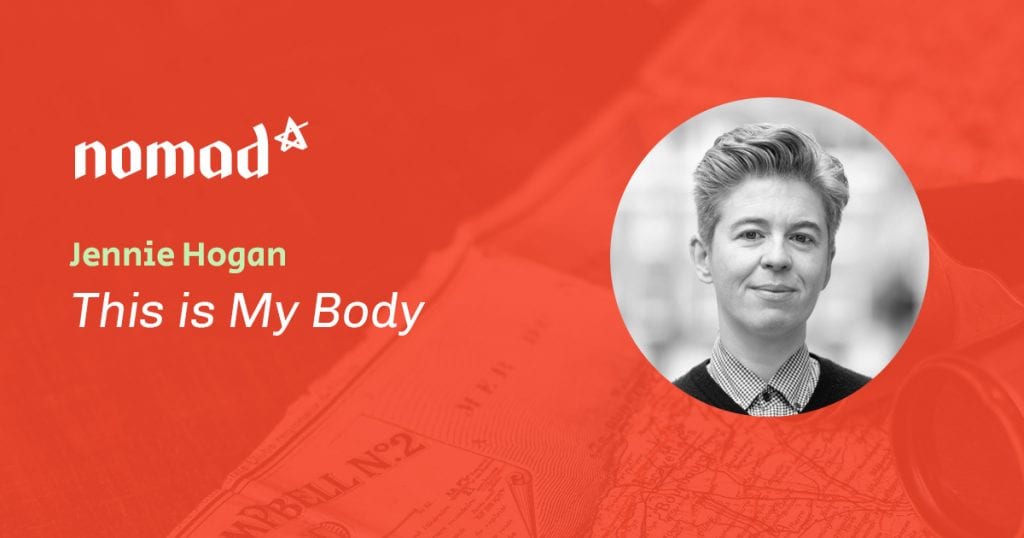When Jennie Hogan was 11 years old she had a brain haemorrhage. Then at the age of 14 she had another one. This devastating experience left her with a brain injury that would transform her life.
So we met up with Jennie at Goodenough College where she is a chaplain, to talk with her about how her experience of trauma, illness and disability has caused her to reflect on how she relates to her body, what an embodied faith means to her, how she’s learnt to live with uncertainty, and about the emergence of a new identity through her experience of brokenness.
After the interview, Nomad hosts Tim Nash and Nick Thorley reflect on Jenny’s faith journey and ponder how their own experiences of disability and brokenness have shaped their evolving faith.
Interview starts at 17m 17s

BOOKS
This is My Body: A Story of Sickness and Health
QUOTES
“I think the Christian faith is the most embodied faith, and yet we don’t live it out because I think we’re afraid of our broken bodies. We’re afraid of our bodies. We’re afraid of each other’s bodies. They’re frightening, aren’t they? Cause they’re messy and frail and fragile. And we don’t like that. I think if we think about the church being Christ’s body, well then we shouldn’t get so worked up about it being a mess, should we? Cause it is chaos, it is frail – and that’s okay.”
“If we think of the broken body of Christ, we have to also recognize that we are broken and we can’t always be fixed. And does it mean that because my sight hasn’t recovered means that I’m any less valid or human, or that the church has failed, or that God doesn’t exist? The notion of being fixed is a fantasy. Why can’t we just live with the brokenness and the frailty and let that be healing?”
